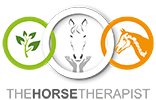Cushing's disease ( Pituitary Pars Intermedia Dysfunction or Equine Cushing Syndrome ) develops in the horse due to damage to the nerves that control the pituitary gland. The pituitary gland is a gland that hangs under the brain and is therefore also called brain appendage. The term "Cushing's disease" refers to a benign tumor on the pituitary gland known in dogs. It appears that this only occurs at a much later stage in horses, so that we now use the new term PPID for horses.
Due to the lack of control, the pituitary gland produces too much ACTH (adrenocorticotropic hormone), which increases the secretion of corticoids (such as cortisol) by the adrenal glands. The adrenal glands are two small glands located near the kidneys. The stress hormone cortisol lowers the production of proteins, increases blood sugar levels, suppresses the immune system and has an anti-inflammatory effect.
This excessive production of corticoids disrupts the sugar and fat metabolism, which can lead to insulin resistance or laminitis. The ACTH value can be checked with a blood test, which gives you an indication of the possibility of PPID in your horse. This value depends partly on the season and can therefore vary during the year. So pay close attention when you have it tested or keep that in mind.
PPID symptoms
Excessive and curly hair growth, sometimes with a different colour or structure, and the horse does not shed well
Drinking and urinating excessively
Excessive sweating
Muscles become thinner and less powerful, especially on the topline
Often an increased appetite
Fatty lumps in the cavity above the eye
A bulging belly with a bare back due to the disappearance of back muscles
Reduced resistance
Difficult-healing wounds and recurring infections (such as mud fever and rain scab)
Reduced fertility and abnormal cycle
At an early stage: decreased work ethic, loss of performance, character changes (calmer, less alert, sleepier)
The blood count ACTH should always be considered in conjunction with the horse's symptoms and the horse's overall condition. ACTH is an a-specific hormone, which stimulates the body to take action, for example in the long-term presence of stress or pain. A high ACTH value does not mean that there is nerve damage in the pituitary gland, but that there is something wrong with the horse.
What can you do?
Feed little or no concentrates : give as little concentrates as possible, because a high content of sugars and starch can increase the risk of laminitis. If you do give concentrates, give concentrates with a low sugar and starch content.
Good quality roughage : choose a good roughage, where the basic needs are covered, possibly supplemented with a complete vitamin and mineral supplement. Preferably feed hay, because silage quality and sugar content can vary. Hay from unfertilized areas can be high in sugar. Be careful with grass, it depends per horse and per meadow whether a horse with PPID can handle it or not.
Maintain a good body condition : try to keep your horse in an optimal condition. A horse that is too lean is not good, but being overweight increases the chance of getting insulin resistance, which can lead to laminitis.
Avoid stress : in addition to good nutrition, it is also important to avoid stress as much as possible
And then?
Once nerve damage has occurred, it will probably not be able to repair itself. The most used medicine to bring the horse back into balance is pergolide. This drug takes over the function of the nerves to slow down the pituitary gland. Pergolide (brand name Prascend) is very expensive for horses and also has less pleasant side effects, especially when the horse has to get used to it or when the dose is too high. With certain herbs adapted to PPID, the horse can do well for a long time. In any form of treatment, it is important to have the ACTH value checked regularly, it should be brought back to the normal value if possible and remain there, otherwise it may be necessary to adjust the dosage of the medication .
* written by Jente Driessen from HorseComplete and translated by Sharon Bronsveld from The Horse Therapist and member of the HorseComplete team

The Horse Therapist - 2020-04-09 12:40:09
Hi Michelle, sorry for the late reply. I have only seen your comment just now. To find out what herbs suit your horse best I would have to measure your horse. Every horse is different and will have their own needs. But common herbs that horses with cushings will select are red clover, monkpepper, strawberry leaf, olive leaf and sage. I hope this answers your question. If you have any more then please let me know. Kind regards, The Horse Therapist
Michelle - 2020-03-11 13:33:13
What herbs do you recommend? My horse is currently on prascend but I'd like to know what I can add to his diet to help support him.